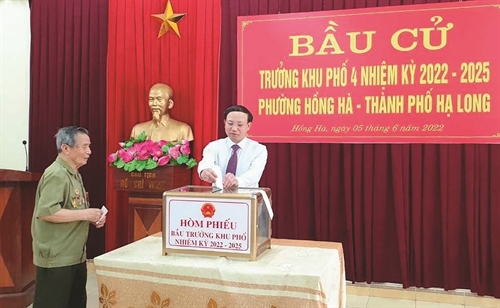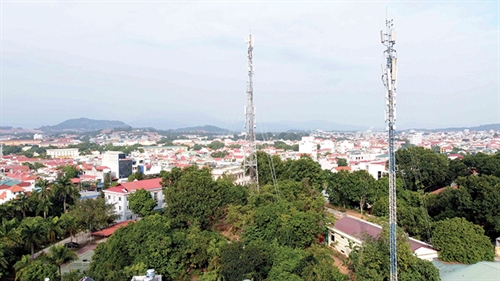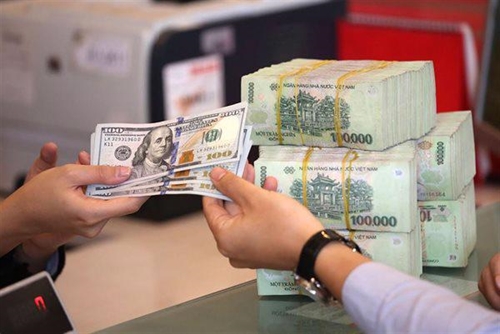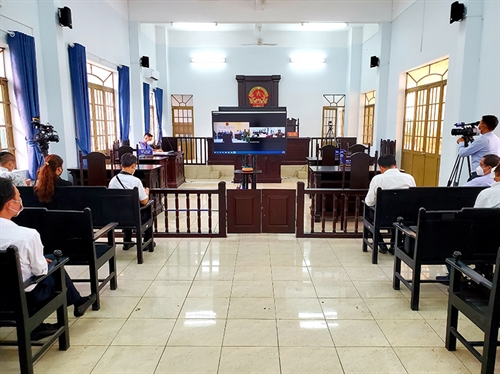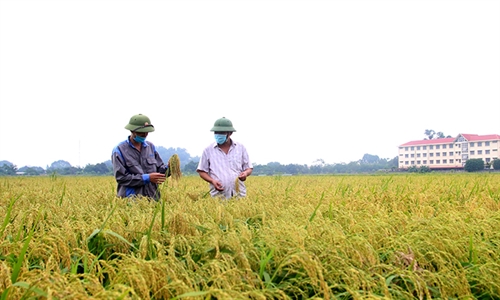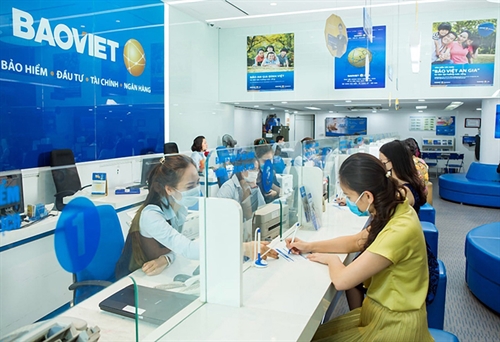 |
| Telehealth brings benefits to patients__Photo: https://suckhoedoisong.vn/ |
To be effective from the beginning of 2024 after one year from the date of its passage, the Law on Medical Examination and Treatment (the Law) aims to deal with shortcomings and emerging problems in medical examination and treatment activities in a bid to develop and improve the quality of medical services toward ensuring fairness and high efficiency, and meeting international integration requirements. It also seeks to strengthen the state management of these activities. The Law will supersede its 2009 predecessor with revisions made in 2017.
The Law defines the rights and obligations of patients, medical examination and treatment practitioners and medical examination and treatment establishments. It provides for technical expertise in medical examination and treatment, medical examination and treatment by traditional medicine and combination of traditional medicine with modern medicine. Other provisions include medical examination and treatment for humanitarian and not-for-profit purposes, transfer of professional techniques in medical examination and treatment, application of new techniques, new methods and clinical trials, and professional and technical errors. The Law also sets conditions for assurance of medical examination and treatment activities, mobilization and transfer of resources for medical examination and treatment in case of occurrence of disasters, catastrophes, group-A infectious diseases or state of emergency.
The 121-article Law has many new contents regarding improvement of medical examination and treatment practitioners’ professional skills and service quality of medical examination and treatment establishments, facilitation of people’s access to medical examination and treatment services, and revision of regulations related to conditions to secure the implementation of medical examination and treatment activities.
Practicing licenses
The Law renames practicing certificate as practicing license. In general, the contents of a practicing license remain unchanged compared to those of a practicing certificate, except the content on validity period of a practicing license, which is five years, while no expiry date is specified for a practicing certificate under the 2009 Law on Medical Examination and Treatment. In addition, practicing certificates granted before the date the Law takes effect will be converted into practicing licenses according to the Government-set roadmap and extended every five years from the date of conversion.
Under the Law, practicing licenses will be granted based on applicants’ professional titles, but not on their professional diplomas under current regulations. A practicing license is required for doctors, assistant doctors, nurses, midwives, laboratory technicians, clinical nutritionists, pre-hospital emergency care providers, clinical psychologists, herb doctors, and owners of traditional herbal remedies or traditional healing methods. Each practitioner may be granted only one practicing license which is valid nationwide.
As stated in Article 29 of the Law, a practicing license granted by a foreign authority may be considered for recognition when fully satisfying the following conditions. First, it is recognized under a treaty to which Vietnam is a contracting party or under an international agreement to which Vietnam is a signatory; or it is granted by a foreign authority which is subject to evaluation by the Ministry of Health for recognition. Second, it remains valid at the time of request for recognition. Last, it contains information about the its holder’s professional title that must be equivalent to one of the professional titles specified at Points a thru h, Article 26.1 of the Law.
Holders of practicing licenses granted by foreign authorities and recognized in Vietnam are not required to undergo medical examination and treatment internship under Article 23 of the Law and to take tests for evaluation of medical examination and treatment practicing capacity under Article 24 of the Law.
Improving and standardizing skills of medical practitioners
In an attempt to improve and standardize professional skills of medical practitioners, the Law requires that practicing licenses must be granted based on professional capacity tests organized by the National Medical Council. Under current regulations, the grant of practicing licenses is based on examination of application dossiers. The testing for evaluation of medical examination and treatment practicing capacity before the grant of a practicing license will apply to the titles of doctor, assistant doctor, nurse, midwife, laboratory technician, clinical nutritionist, pre-hospital emergency care provider and clinical psychologist.
Practitioners who apply for extension of their licenses must satisfy additional conditions, including the requirement on continuous updating of medical knowledge.
Noticeably, it is required that foreigners who wish to practice medical examination and treatment for a long term in Vietnam must be proficient in Vietnamese, except those who practice in the country under cooperation programs on expert exchange, technology transfer or training. However, this requirement will apply from January 1, 2032.
Facilitation of people’s access to medical examination and treatment services
In order to increase patients’ access to medical examination and treatment services, the Law changes the current four-level organizational system of medical examination and treatment establishments to a three-level system.
The Law allows private polyclinics in areas with difficult socio-economic conditions, areas with extremely difficult socio-economic conditions or border areas, or on islands, state-run regional polyclinics, maternity hospitals and commune health stations to arrange beds for patient monitoring and treatment for at most 72 hours, except cases of force majeure events due to disasters, catastrophes or epidemics.
At the same time, telehealth activities will be promoted with the hope of achieving universal health coverage by improving patients’ access to quality, cost-effective healthcare services at anytime and anywhere, especially for less serious and chronic diseases that require long-term and regular care.
The Law introduces two forms of telehealth and telehealth support, namely telehealth between practitioners and patients and telehealth support between medical examination and treatment establishments. The first form will be implemented within the scope of practitioners’ practice and applied to the Minister of Health-issued list of diseases and disease status. Practitioners will bear responsibility for their disease diagnosis results, designation of treatment methods and prescription of drugs. As per the second form, practitioners at supported medical examination and treatment establishments will be held responsible for their medical examination and treatment results, while the supported establishments have to pay telehealth support costs to medical examination and treatment establishments that provide telehealth support at their agreed rates.
New requirement to self-evaluate medical examination and treatment quality
In order to improve the service quality of medical examination and treatment establishments, the Law has a new provision on quality self-evaluation.
As required in Article 58.3, annually, medical examination and treatment establishments will conduct quality self-evaluation based on the Ministry of Health-issued fundamental quality standards for medical examination and treatment establishments. They must also update the results of self-evaluation on the information system on management of medical examination and treatment activities. These results will be used as a basis for the state management agency in charge of medical examination and treatment to inspect quality evaluation for the medical examination and treatment establishments in adherence to the risk management principles.-



